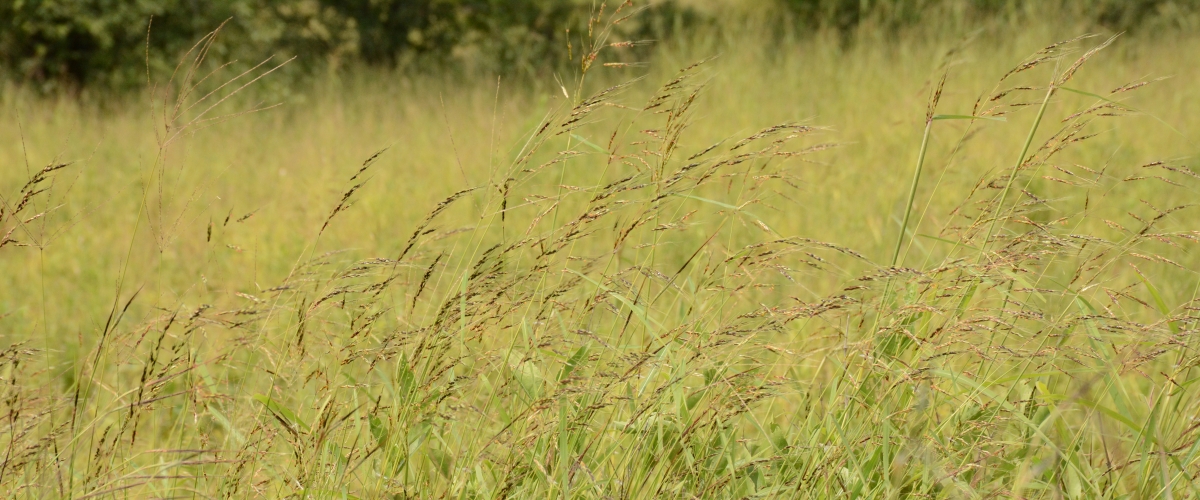
They look like grass to an ordinary person, yet they play an important role in the sustainability of the agricultural sector. These are crop wild relatives and resemble cultivated crops with special traits considered by researchers in their breeding programmes.
Crop wild relatives are essential because they bring value to cultivated crops regarding genetic material, such as resistance to pests and diseases and the ability to withstand harsh climatic conditions such as drought, which might not be present in cultivated crops.
The Ministry of Agriculture, through Zambia Agriculture Research Institute (ZARI), working with the Darwin Initiative, has embarked on conserving crop wild relatives to cross breeding with cultivated crops to build resilience against agricultural shocks.
Principal Agricultural Research Officer under ZARI, Graybill Munkombwe, says the primary purpose of conserving crop wild relatives is to link agriculture to the environment. Mr Munkombwe notes that the National Plant Genetic Resources Centre (NPGRC) facilitates the availability and accessibility of traditional crops, including crop wild relatives, to users for research and development, thereby contributing to improved agricultural productivity, production, food and nutrition security.
He added that the project seeks to create a collaborative partnership among breeders, agronomists, environmentalists and farmers to identify crop wild relative hotspots and networks of in situ conservation sites consisting of protected areas and communal areas. Additionally, the project aims to address the sustainability of food security and reduce hunger in southern Africa, thereby contributing to Sustainable Development Goal number two - No hunger and food security.
Mr. Munkombwe said the crop wild relatives are found chiefly in protective areas and communal land. "We are working with the Department of National Parks and Wildlife in identifying the hotspots of different crop wild relatives. Keeping them in the environment where they originally occur is the best way of conserving them as they are in the natural environment and continue to evolve," he emphasised.
Mr. Munkombwe states that National Parks are among the protected areas of importance not only to the National Parks and Wildlife department but also to the Ministry of Agriculture.
Priscilla Sichone, a Principal Planner under the National Parks and Wildlife Department, notes that the Ministry of Agriculture's first focus was to identify and inventories any crop wild relatives available in the parks. Ms Sichone adds that it was discovered that the Kafue and South Luangwa National Parks are home to some crop wild relatives such as rice, cowpeas, sorghum and sweet potato. "With the extensive survey, there is a high chance of finding a lot of diversity for crop wild relatives in the parks," she notes.
Some of these crop wild relatives have been consumed and their harvest and preparation modes transferred from generation to generation.
Tasila Zulu, a South Luangwa game management resident, testified having consumed the crop wild relatives of rice at some point.
Ms Zulu explains that crop wild relatives of rice are essential in ensuring household food security, especially in times of hunger. "During hunger periods, especially the rainy season, we collect the crop wild relatives of rice put in a sack, pound and prepare a meal for the family," she narrated.
Crop World Relatives are seen as the hope for crop scientists in sustaining the food system against climate change and other shocks.
It is a collective responsibility to take care of nature so that it can continue providing the services it brings to the agricultural sector.
Bridging agriculture and the environment is one of the eminent challenges which needs urgent attention. It is not sustainable to rely on a few available food crops for future food security; resilience is found in diversity. Protecting crop wild relatives of the country's major crops cannot be overemphasised.
The author is an Agriculture Information Officer at the National Agricultural Information Services. She is also CCARDESA Information, Communication and Knowledge Management (ICKM) focal point person for Zambia






